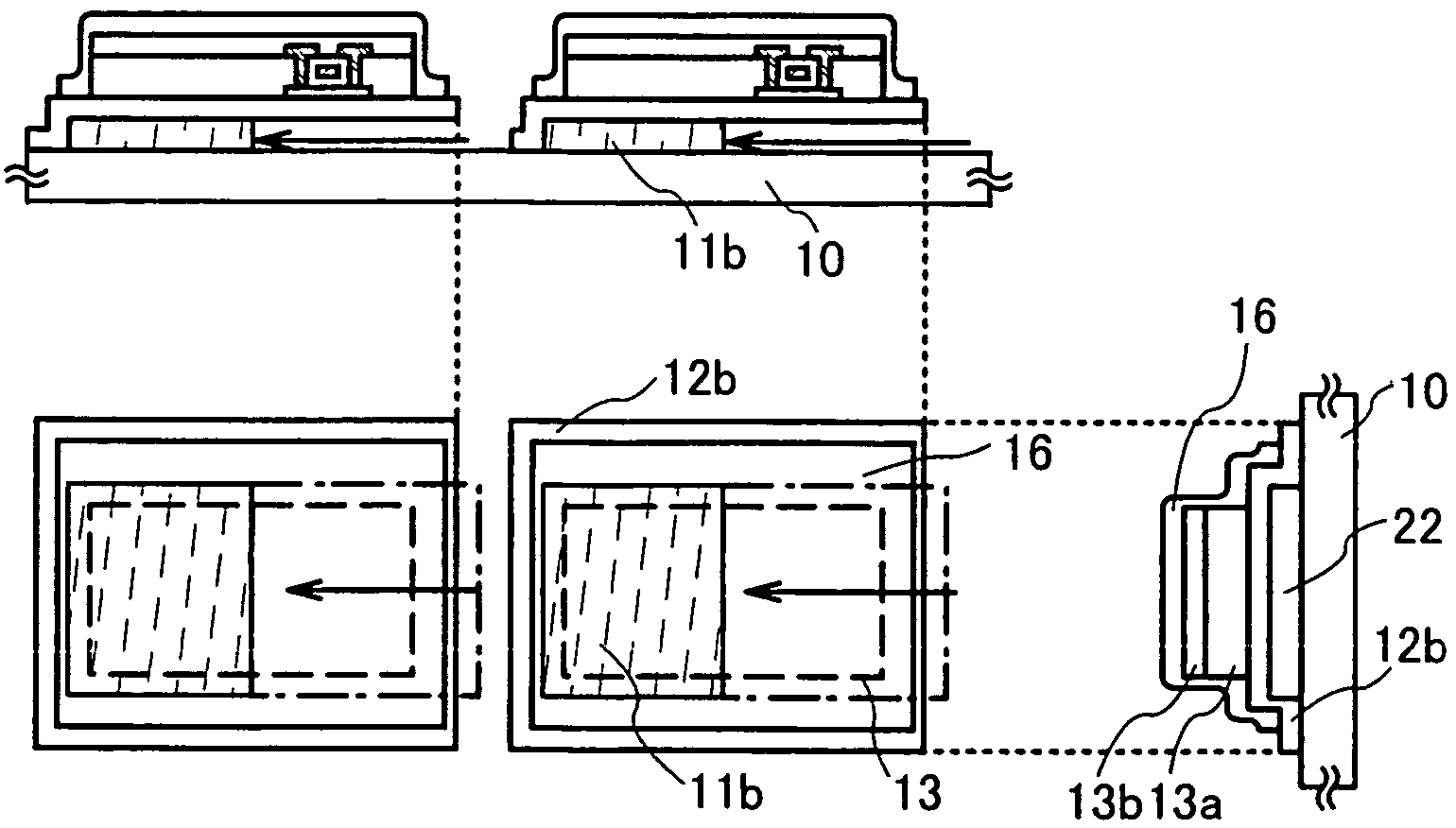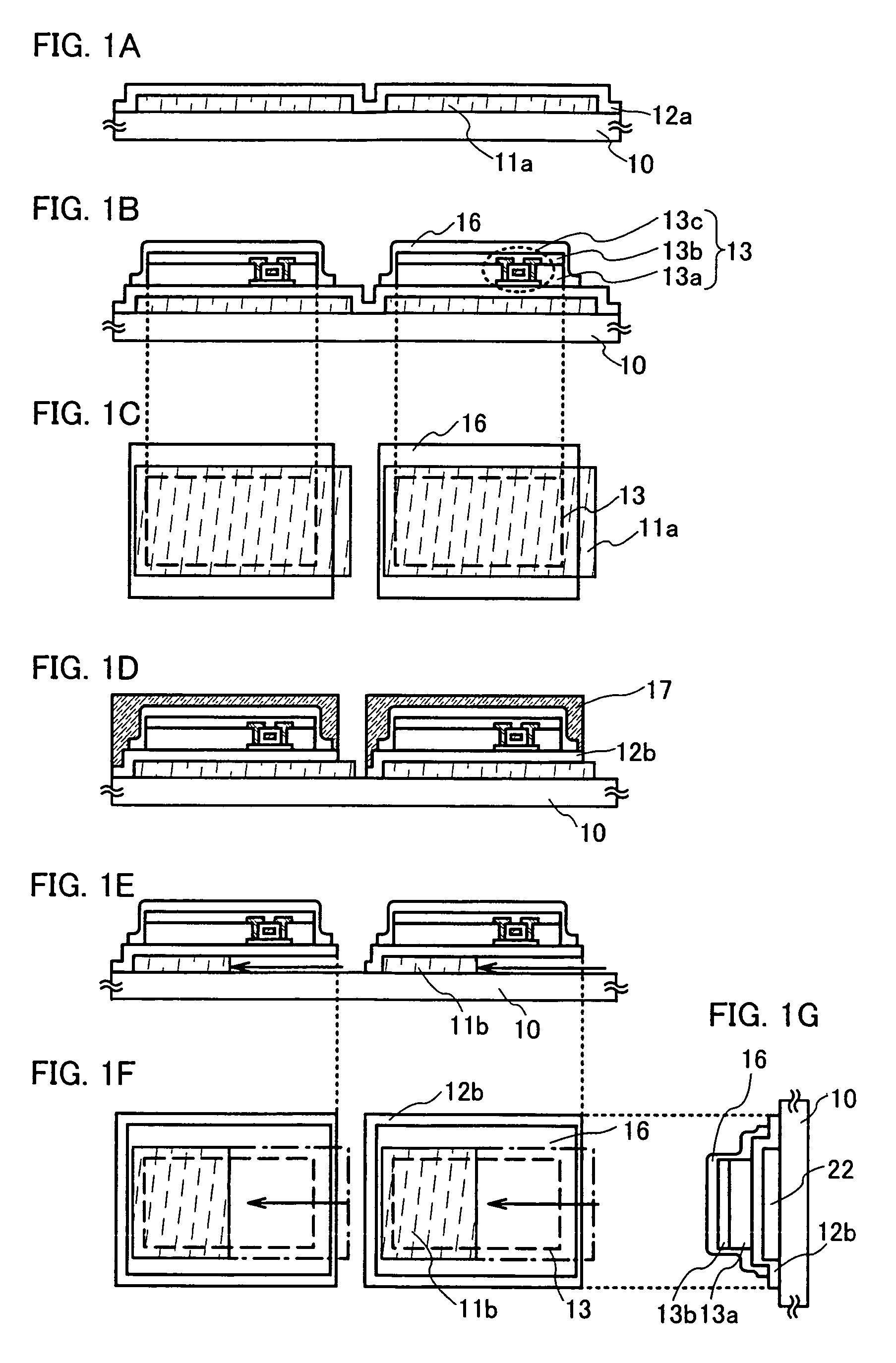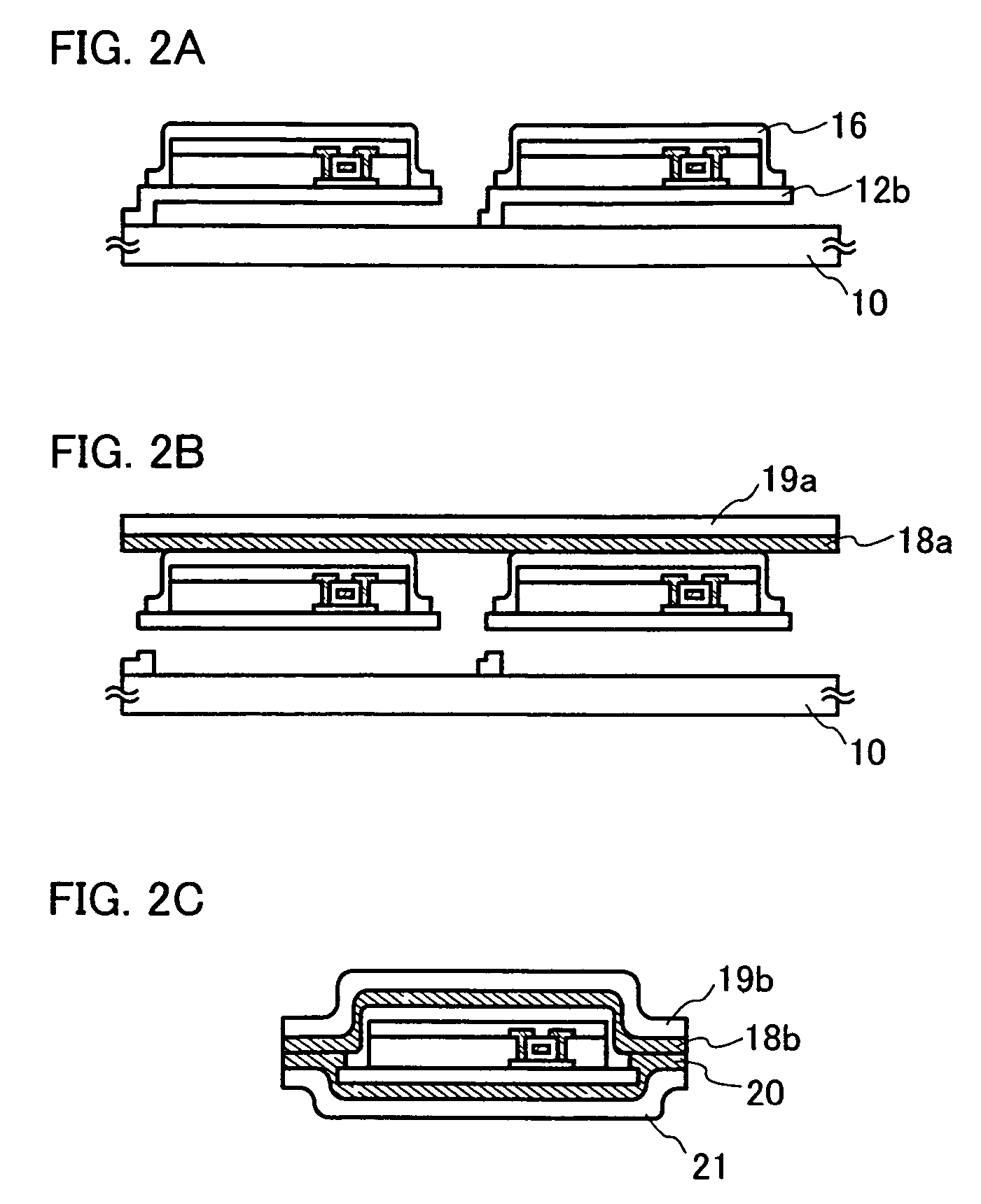Method for manufacturing semiconductor device
a manufacturing method and semiconductor technology, applied in the direction of semiconductor devices, basic electric elements, electrical equipment, etc., can solve the problems of difficult use of increase in number of steps, and difficulty in using integrated circuits including thin films, so as to achieve efficient and massively small manufacturing devices
- Summary
- Abstract
- Description
- Claims
- Application Information
AI Technical Summary
Benefits of technology
Problems solved by technology
Method used
Image
Examples
embodiment mode 1
[0059]Here, a method for manufacturing a semiconductor device according to the present invention is explained hereinafter.
[0060]First, a peeling layer 11a is formed over a substrate 10 having an insulating surface, patterning of the peeling layer is performed. The substrate 10 having the insulating surface corresponds to a glass substrate, a quartz substrate, a plastic substrate, a resin substrate formed from a flexible synthetic resin such as acrylic, or a metal substrate. As for the peeling layer 11a, a layer containing silicon is formed by a known method such as a sputtering method or a plasma CVD method. The layer containing silicon corresponds to an amorphous semiconductor layer, a semi-amorphous semiconductor layer in which an amorphous state and a crystalline state are mixed, or a crystalline semiconductor layer.
[0061]Then, a base insulating layer 12a including an inorganic insulating film is formed. As for the base insulating layer 12a, a single layer film including silicon ...
embodiment mode 2
[0075]Here, a manufacturing method which is different from that of Embodiment Mode 1 is explained with reference to FIGS. 3A to 3F.
[0076]First, an island-shaped peeling layer 311a is formed over a substrate 310 having an insulating surface in the similar way as in Embodiment Mode 1. Then, a base insulating layer 312a including an inorganic insulating film is formed in the similar way as in Embodiment Mode 1 (refer to FIG. 3A).
[0077]Then, a peeled layer 313 including a first element group and the base insulating layer 312a as the first layer is formed in the similar way as in Embodiment Mode 1. The peeled layer 313 including the first element group includes a first interlayer insulating layer 313a, a second interlayer insulating layer 313b, a plurality of TFTs 313c, and a conductive layer serving as an antenna. The peeled layer 313 including the first element group ends up being one device. Then, a protective layer 316 is formed by a screen printing method or a droplet discharge meth...
embodiment mode 3
[0086]Here, a manufacturing method which is different from those in Embodiment Mode 1 and Embodiment Mode 2 is explained with reference to FIGS. 4A to 5B.
[0087]Embodiment Mode 1 illustrates an example in which a peeling layer is formed in an island shape; however, this embodiment mode illustrates an example without patterning a peeling layer.
[0088]First, a peeling layer 411a is formed over the whole surface of a substrate 410 having an insulating surface. Then, a base insulating layer 412a including an inorganic insulating film is formed (refer to FIG. 4A).
[0089]A peeled layer 413 including a first element group and the base insulating layer 412a as the first layer is formed. The peeled layer 413 including the first element group includes a first interlayer insulating layer 413a, a second interlayer insulating layer 413b, a plurality of TFTs 413c, and a conductive layer serving as an antenna. The peeled layer 413 including the first element group ends up being one device.
[0090]Then,...
PUM
 Login to View More
Login to View More Abstract
Description
Claims
Application Information
 Login to View More
Login to View More - R&D
- Intellectual Property
- Life Sciences
- Materials
- Tech Scout
- Unparalleled Data Quality
- Higher Quality Content
- 60% Fewer Hallucinations
Browse by: Latest US Patents, China's latest patents, Technical Efficacy Thesaurus, Application Domain, Technology Topic, Popular Technical Reports.
© 2025 PatSnap. All rights reserved.Legal|Privacy policy|Modern Slavery Act Transparency Statement|Sitemap|About US| Contact US: help@patsnap.com



